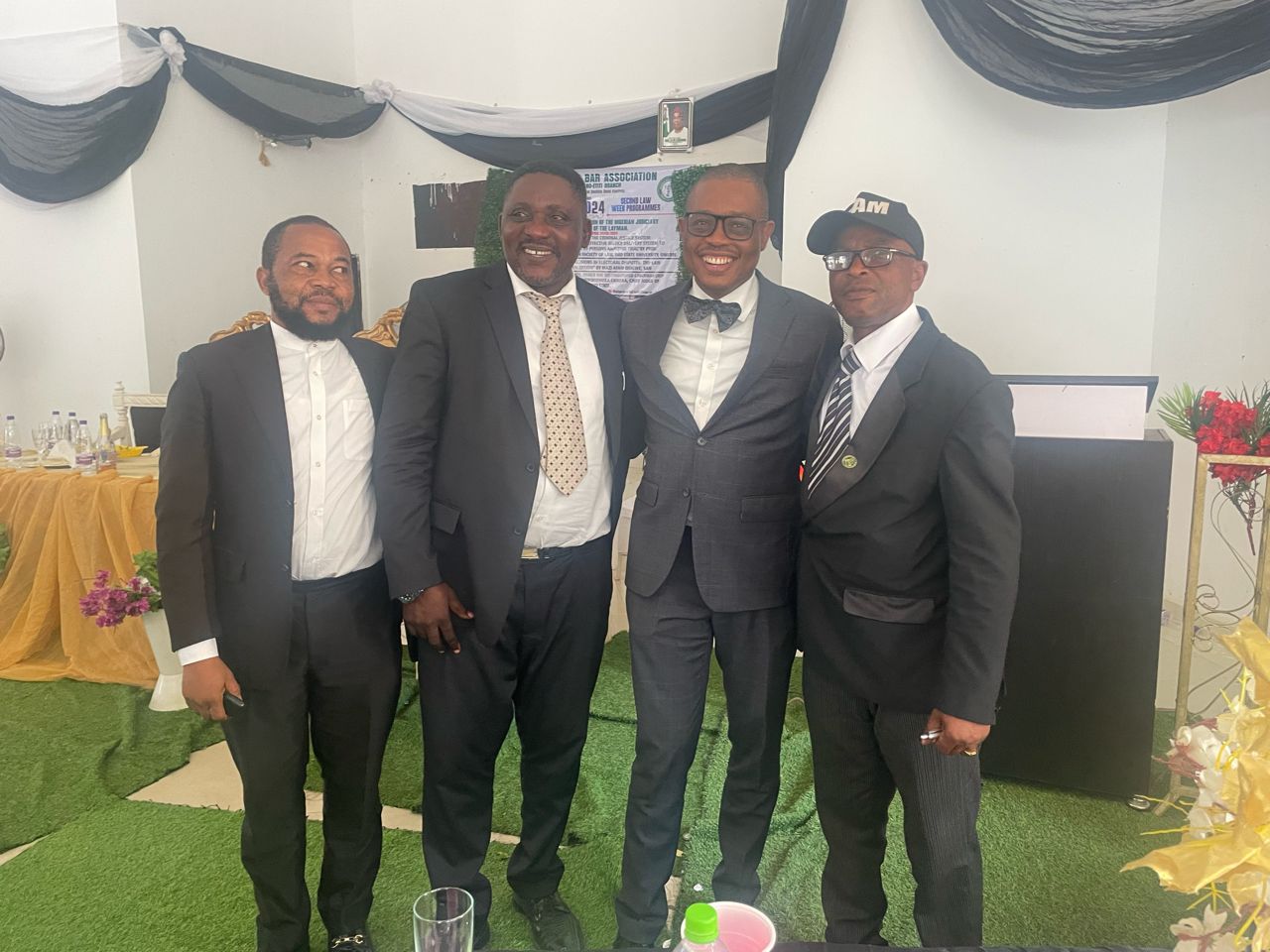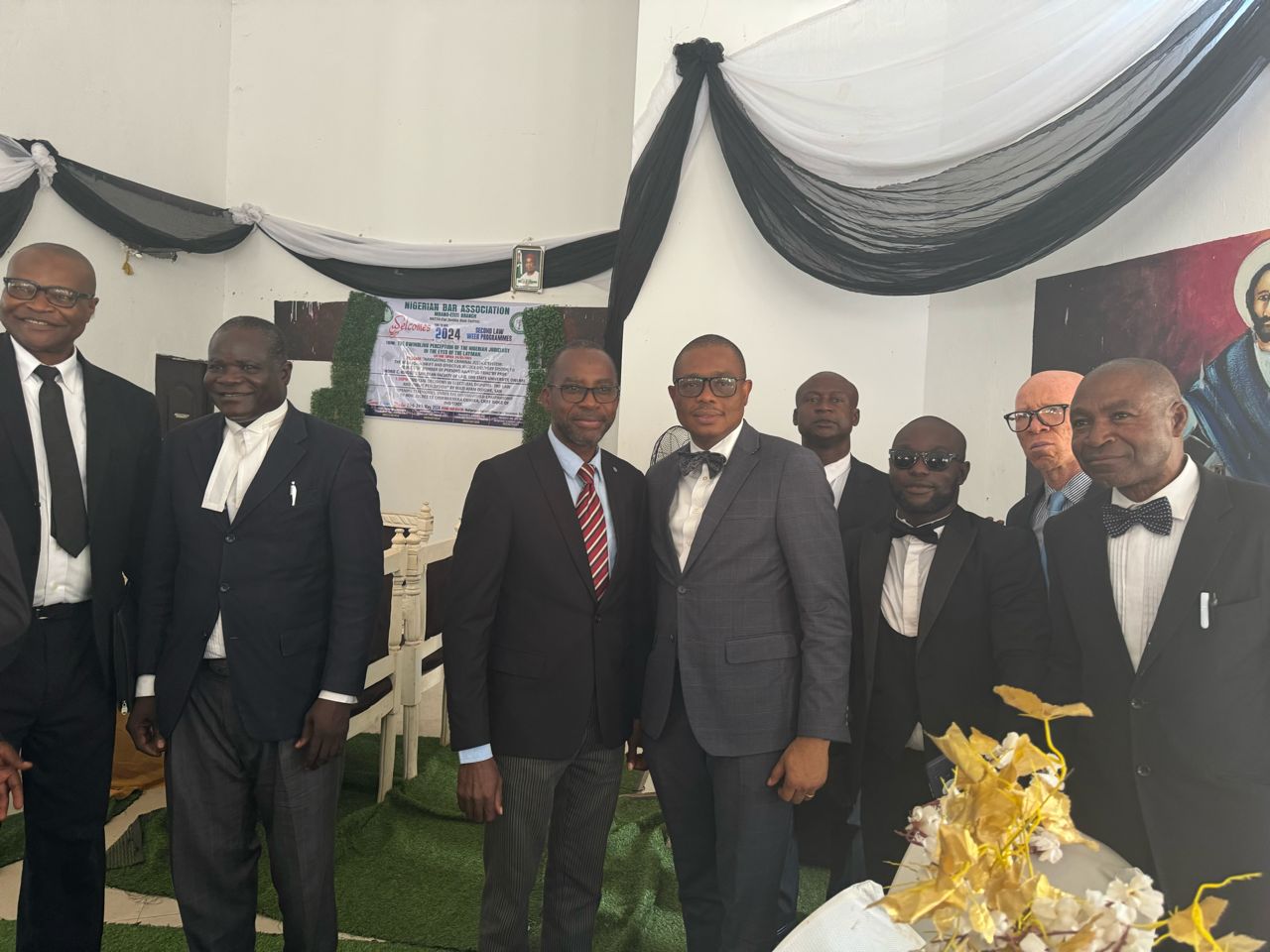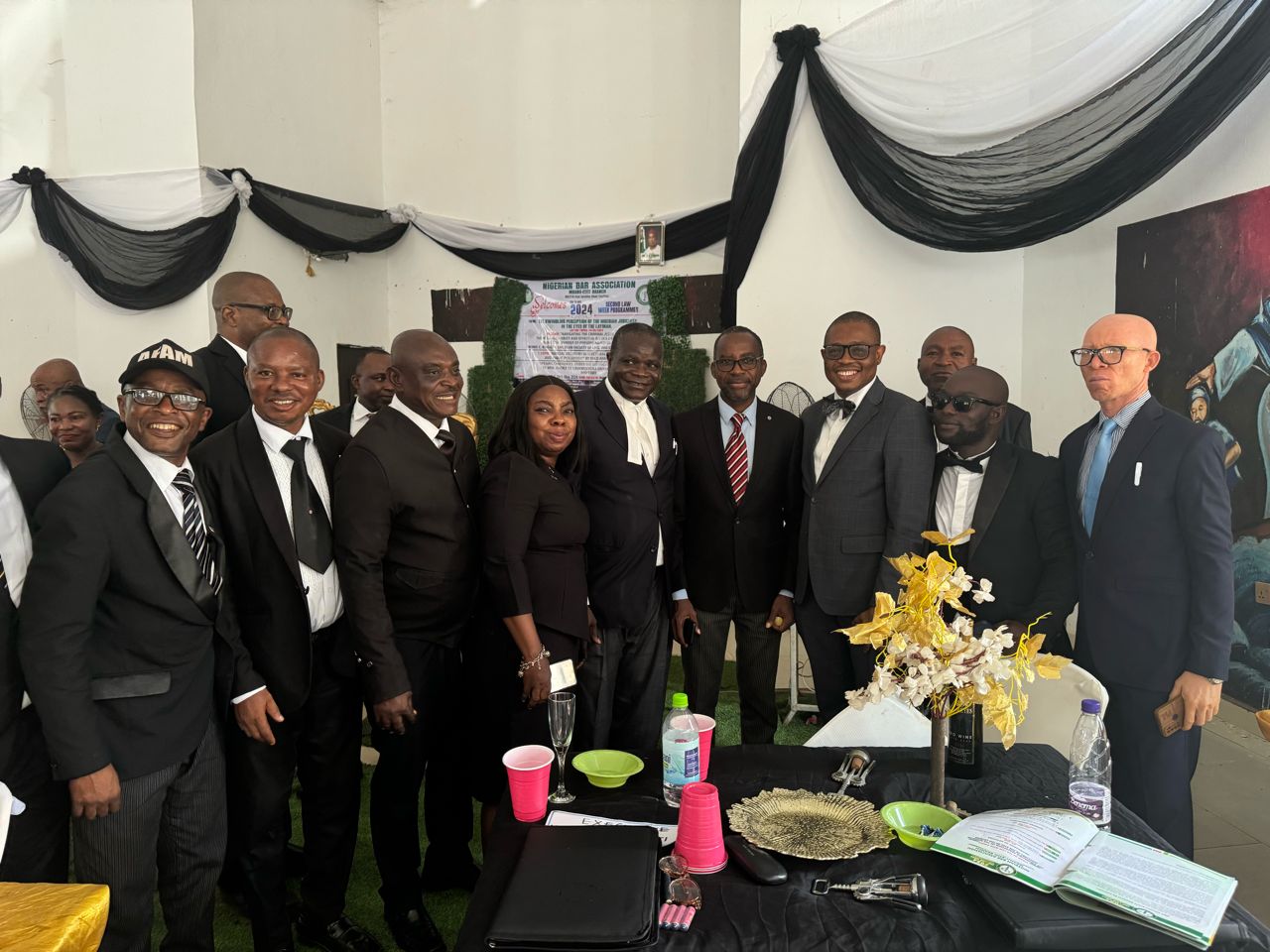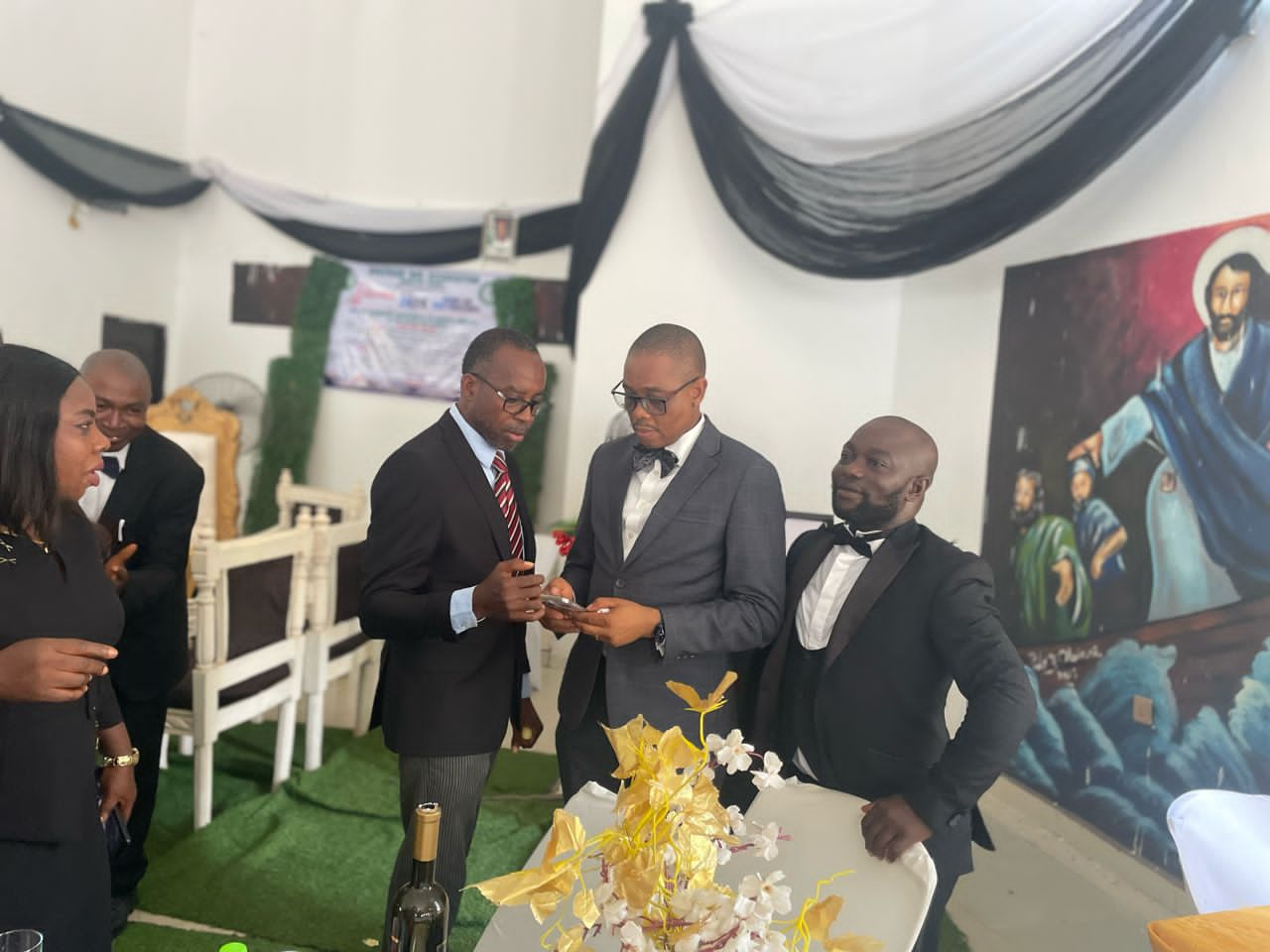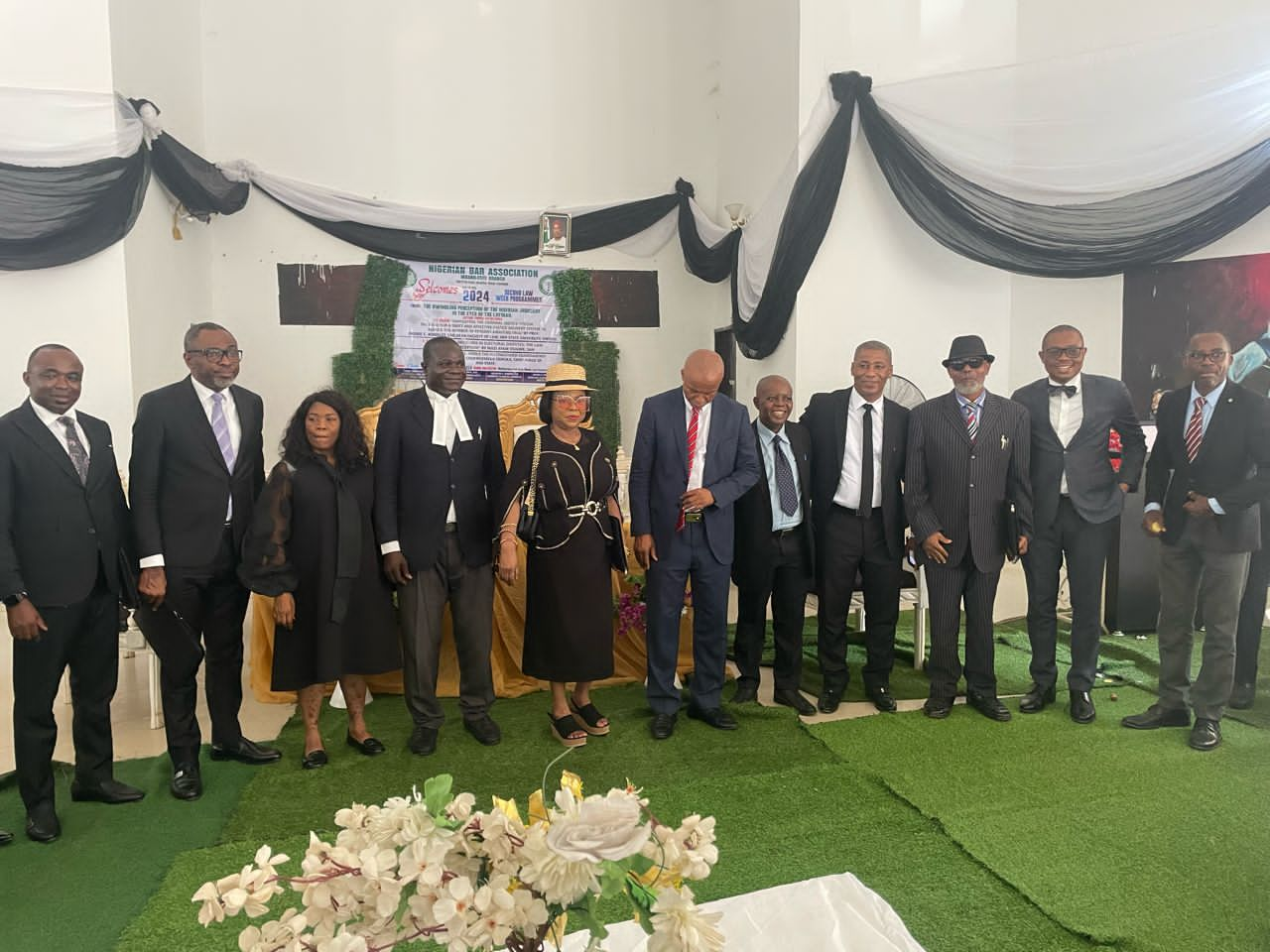AFAM OSIGWE, SAN Addresses Nigerian Bar Association Mbano-Etiti Law Week: The Judiciary’s Role in Electoral Disputes
In a compelling and insightful session at the Law Week of the Nigerian Bar Association, Mbano-Etiti Branch, Afam Osigwe, SAN, delivered a thought-provoking lecture on the theme: “The Dwindling Perception of the Nigerian Judiciary in the Eyes of the Layman.” His address focused specifically on “Judicial Decisions in Electoral Disputes: The Law and Public Perception,” a topic of significant relevance in the current socio-political climate of Nigeria.
He noted that the Nigerian judiciary has been under intense scrutiny, particularly regarding its handling of electoral disputes. The credibility of the judiciary is crucial for maintaining public trust in the democratic process. As such, the lecture by Afam Osigwe, SAN, could not have come at a more pertinent time, given the critical role the judiciary plays in upholding the rule of law and ensuring fair electoral practices.
Afam Osigwe began by outlining the fundamental role of the judiciary in electoral disputes, emphasizing its responsibility to interpret and apply the law impartially. He highlighted that judicial intervention is often sought to resolve conflicts arising from elections, making the judiciary a crucial arbiter in maintaining democratic integrity.
He delved into the legal framework governing electoral disputes in Nigeria, explaining key statutes and constitutional provisions that guide judicial decisions. Osigwe noted that the Electoral Act and the Constitution of the Federal Republic of Nigeria provide the basis for adjudicating electoral matters, ensuring that disputes are resolved within the ambit of the law.
He did not shy away from discussing the challenges that undermine the judiciary’s effectiveness and credibility. He pointed out issues such as judicial corruption, and undue political influence, as significant factors contributing to the public’s dwindling perception of the judiciary. He also emphasized the need for judicial independence to ensure fair and unbiased decisions.
One of the core aspects of Afam Osigwe’s lecture was the impact of public perception on the judiciary. He explained that public trust is essential for the legitimacy of judicial decisions. When the public perceives the judiciary as corrupt or biased, it undermines the entire electoral process and, by extension, democracy itself. Afam Osigwe urged the judiciary to be more transparent and accountable to rebuild trust with the public.
In conclusion, he emphasized that the nexus between judicial decisions in electoral disputes and public perception forms a critical aspect of democratic governance in Nigeria. As highlighted in the discussion, the judiciary plays a pivotal role in shaping the electoral landscape and safeguarding the integrity of the democratic process. However, challenges arise when judicial decisions are perceived as biased, politically influenced, or lacking transparency. The future is bright for the administration of justice in Nigeria, and the judiciary must continue to promote practices that entrench efficiency in the movement of justice. We must therefore set standards that do not, in the immortal records of posterity, bear any blame for backward shifts in the efficient delivery of justice in Nigeria.
The hope of the common man will continue to wane in the judiciary if we do not fix it. Our clients will take us as playmates if we do not maintain standards in our relationships with the justice system. If we get our system properly fixed, everything will fall into place.
Afam Osigwe, SAN’s lecture at the Law Week of the Nigerian Bar Association, Mbano-Etiti Branch, provided a comprehensive analysis of the critical role of the judiciary in electoral disputes and the importance of public perception. His insights underscored the necessity for ongoing reforms to enhance the credibility and effectiveness of the judiciary in Nigeria. The lecture served as a clarion call for legal professionals, policymakers, and the judiciary itself to work collaboratively toward restoring public confidence in the judicial system, thereby strengthening the foundations of Nigeria’s democracy.
The event was well-received, sparking meaningful discussions among attendees about the future of the judiciary in Nigeria. It highlighted the importance of addressing the challenges facing the judicial system to ensure that it remains a pillar of justice and democracy in the country.
